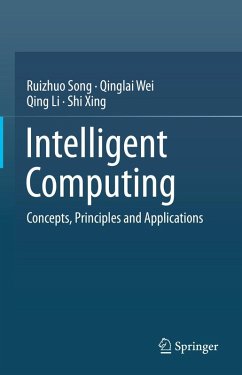Intelligent computing is a computational approach primarily inspired by the objective laws governing biological groups in nature, as well as the behaviors of biological thinking and movement. It encompasses various algorithmic fields such as evolutionary computation, swarm intelligence computation, neural computation, and more. These algorithms typically achieve the goals of intelligent computing by simulating the distinctive functions of certain species in nature or specific characteristics of natural phenomena. By programming and executing the collective wisdom of biological groups and leveraging natural laws, optimization algorithms with intelligent essence are designed.
This book serves as an introduction to widely used and common intelligent computing methods. It covers fundamental concepts, principles, model characteristics, and typical application examples of various intelligent computing methods. Additionally, it provides the latest examples along withcorresponding Matlab or Python codes, facilitating readers in deepening their understanding and reproducing the content. The target audience for this book includes senior undergraduate and graduate students majoring in automation, artificial intelligence, intelligent science and technology, computer science, and related fields. It can also serve as a valuable self-study reference for professionals in computer science, artificial intelligence, and related disciplines.
This book serves as an introduction to widely used and common intelligent computing methods. It covers fundamental concepts, principles, model characteristics, and typical application examples of various intelligent computing methods. Additionally, it provides the latest examples along withcorresponding Matlab or Python codes, facilitating readers in deepening their understanding and reproducing the content. The target audience for this book includes senior undergraduate and graduate students majoring in automation, artificial intelligence, intelligent science and technology, computer science, and related fields. It can also serve as a valuable self-study reference for professionals in computer science, artificial intelligence, and related disciplines.

